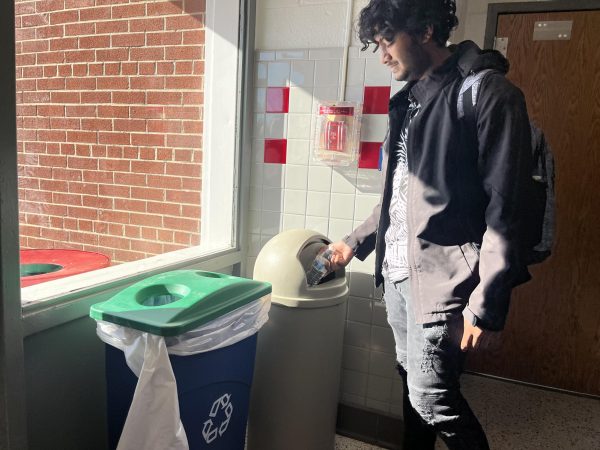Beware of fake news
A screen grab from the fake news site Liberty Writers News told the Washington Post that their stories focus on “chaos and aggressive wording.”
Right after the election, a viral article came out that named Hillary Clinton as leader of a trafficking ring out of a pizzeria shop in Washington D.C., and as a result a gunman, on Dec. 4 came to the shop to root out the supposed “trafficking ring.”
No one was injured, but this is a result of the rapid spread of viral fake news and news sites.
Fake news sites are a new phenomenon that distribute lies to increase web traffic. In using catchy headlines like “Face of Satan Has Arrived in USA” or “Want To Quit Smoking? This Herb Instantly Destroys Your Desire For Nicotine (And How To Grow It),” people are fooled into reading the stories and sharing them.
People are not only increasing the website’s circulation, but misinforming their followers.
Although these websites seem harmless, many of these stories became viral.
Fake news stories about the candidates were at an all time high, which influenced the candidates reputations.
One of the most viral stories during this election was that the Pope endorsed Donald Trump.
Because of this the Pope called out the media to say that the spreading of these lies is a great “sin.”
Another viral story said that Trump won the popular vote by a landslide, when actually he only won the electoral votes.
Tech giants like Facebook and Google are working to reduce these fake news stories and websites as many are blaming them for the rapid spread of these stories.
These sites have even been credited for the result of the 2016 election because many of these fake stories about the candidates went viral.
Because of this, Facebook and Google have decided to block fake news sites from advertising on their websites and are taking steps to deny revenue to the fraudulent news sites.
However, neither site is prepared to stop the spread of those stories in search engine results.
This does not mean that social media sites are to blame, rather we, as consumers must demand for better content.
Anyone can take measures to reduce the spread of these lies by double checking your sources before sharing these articles.
People are sometimes unaware that they are helping these sites with a simple retweet.

Senior Yabi Bereket has been on the A-blast for four years. This year, she is the International Editor and has previously been editor for the Lifestyles...

Senior Aseal Saed is currently the Co-Editor in Chief of The A-Blast. This is her fourth year on staff. Her previous positions were as In-Depth Editor...












